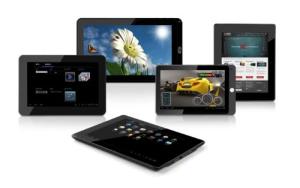Bring Your Own Technology

A recent report from the The Consortium for School Networking in America has highlighted that schools should be allowing their students to bring their own technology to the classroom, rather than just for use at break times. Whilst this is economically viable for schools it does pose a few problems, not only for the parents who will need to be buying this technology for their kids, but for educational Publishers. It essentially means that every title will need to work seamlessly across all devices. This is a big headache for educational publishers, who are creating digital components for their courses.
So how can publishers prepare for the inevitable, if BYOT is inevitable? Well something that has been discussed a lot and Chris Book (of Bardowl – audiobook subscription model) mentioned at Publish New Players was to ensure that digital products are platform agnostic. Which as far as technology goes at the moment would mean to be producing web based content that can be accessed via the net (ie HTML 5).
If educational publishers are going to have to produce digital components for any device or platform, they are going to need to be ahead of the technology game in order to remain competitive. And one of the biggest issues that faces educational publishers in terms of lagging behind technology is the incredibly long lead time most courses have. In some cases publishers are having to second guess what technology will exist 2-3 years in the future. With the rapid rate of technological advancement not ceasing to slow down any time soon, the current educational publishing model is either going to have to change dramatically, or accept that they are just not ahead of their game. Fortunately for educational publishers, schools (particularly in the UK) are not able to afford the latest technology either, but if schools do adopt a BYOT approach then digital components will need to function on any device. Or hope that only one device wins the race!






Thanks for the mention Sophie. I completely agree, especially in educational publishing rental models need to be platform agnostic or at least on as many of the target audiences platforms as possible. I have to highlight our own hypocrisy here though as Bardowl is only available on iOS devices right now but we are working hard.
A technical word of warning though HTML5 is not perfect yet, for example with audio streaming its a tougher challenge to ensure security (DRM) and the ability to securely store large amounts of audio (and I guess text) offline – but as a ‘standard’ its developing fast.
Thanks Chris. With the release of the new Windows tablet this will be even more the case. The debate at Media Futures about the device of the future was interesting – but for now, it seems as if platform agnostic (or say a solution such as Adobe Air, which can then be wrapped in native code – says she working for YUDU Media) is the best option.